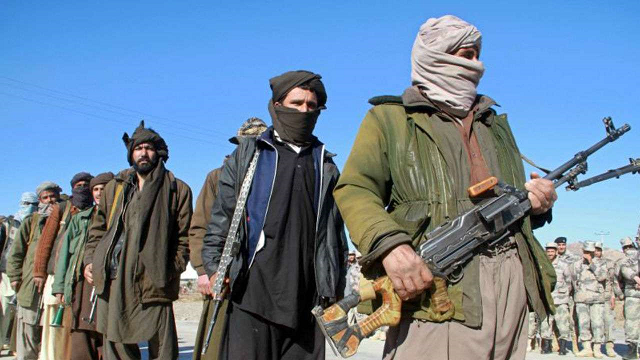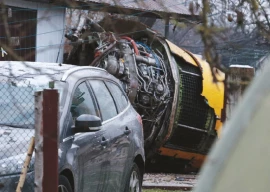
Russia has invited several countries, including the United
States, to the Moscow talks in September but Washington and
Afghanistan have said they will not go.
"Our leaders have accepted Russia's invitation to participate in Russia-led peace talks," said Taliban spokesperson Zabihullah Mujahid.
Taliban to take part in Moscow talks on Afghanistan on Sept 4
At least four senior Taliban members will attend, said a Taliban commander, adding that the delegation would be led by Sher Mohammad Abbas Stanekzai, the head of the group's political office in the Qatari capital Doha.
Hours earlier, the Afghan government said it would not go, a decision that could scupper Moscow's plans for talks on September 4 to discuss the future of the country.
"We have decided against attending the Moscow conference," said an official of the Afghan foreign ministry, adding that the government would "hold direct talks" with the Taliban without the direct involvement of foreign powers.
There appeared to have been a shift in Kabul's stance. Earlier on Wednesday, the office of Afghan national security adviser, Hanif Atmar, said he had asked Russia's ambassador Alexander Mantytski "to put pressure on Taliban insurgents to begin negotiations with the Afghan government".
A senior Kabul-based foreign diplomat whose country is among those invited to the Moscow talks said Russia would now have to "rethink the plans to hold their talks with the Taliban".
"It's no point holding talks about Afghanistan if the leaders of the country are not attending," the diplomat said, speaking on condition of anonymity. The Russian Embassy in Kabul was not immediately available for comment.
Expected US special envoy to Afghanistan tough on Pakistan
Russian contacts
According to a senior diplomat in Kabul, Moscow in recent months has stepped up direct contacts with the Taliban. Russia rejected an accusation by NATO's top commander in Afghanistan this year that it had been supplying weapons to the militant group.
Nearly 40 years have passed since Moscow sent its troops into Afghanistan for a bloody decade-long occupation. Factional conflict has continued ever since, and was given a new international dimension with the US-led invasion of 2001.
Hundreds of people have been killed in Taliban attacks in recent weeks. The group said this week it would press on with its war despite the Kabul government's offer of a ceasefire. Reports by international aid organisations suggest the group controls or contests around 40% of the country's districts.
Back-channel diplomacy between the Taliban and a range of countries--including the United States, Turkey and Saudi Arabia--has taken place over the years in the hope of bringing peace to the country.



1732626034-0/BeFunky-collage-(92)1732626034-0-165x106.webp)


1732618327-2/Untitled-design-(7)1732618327-2-270x192.webp)










COMMENTS
Comments are moderated and generally will be posted if they are on-topic and not abusive.
For more information, please see our Comments FAQ